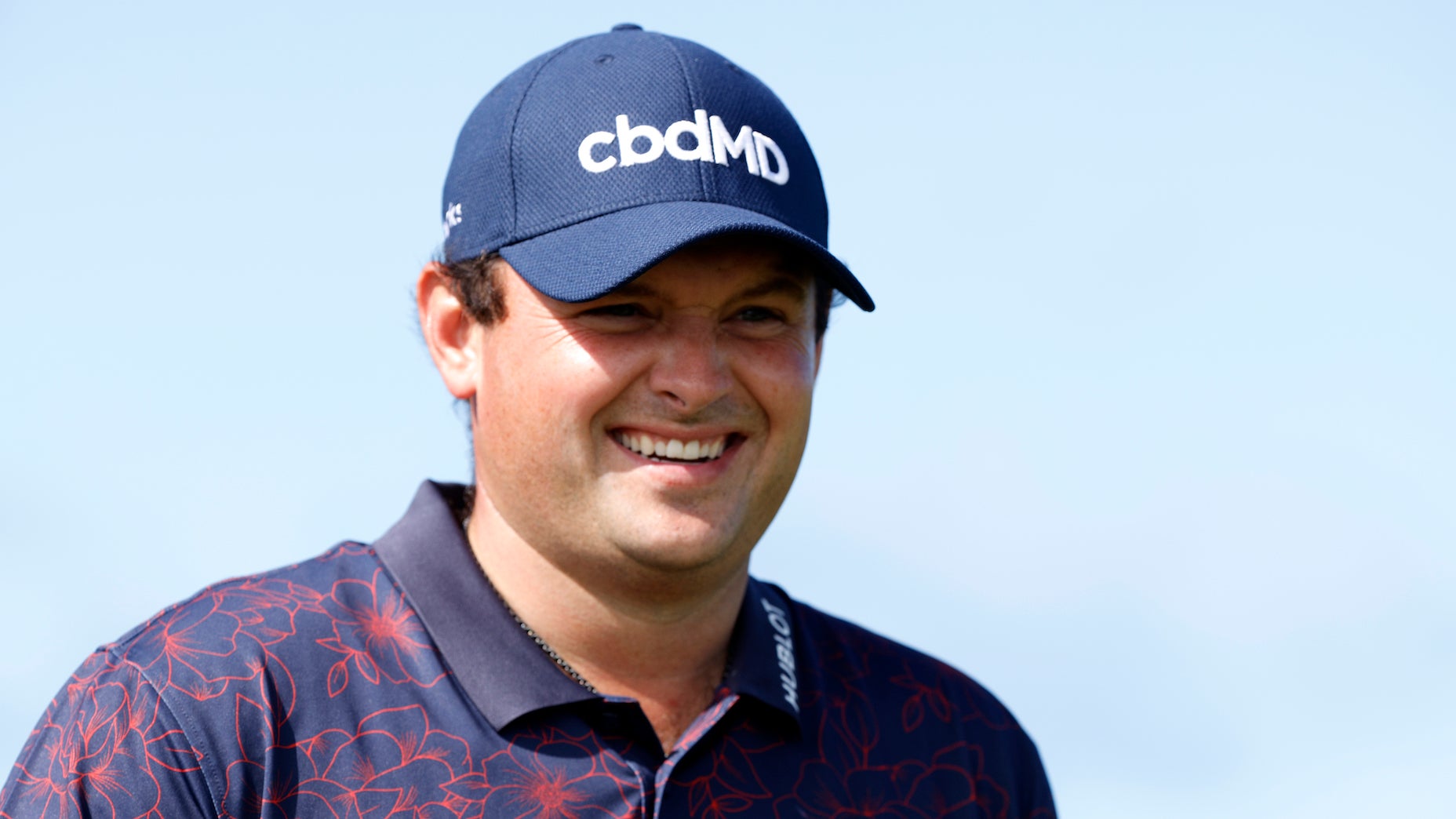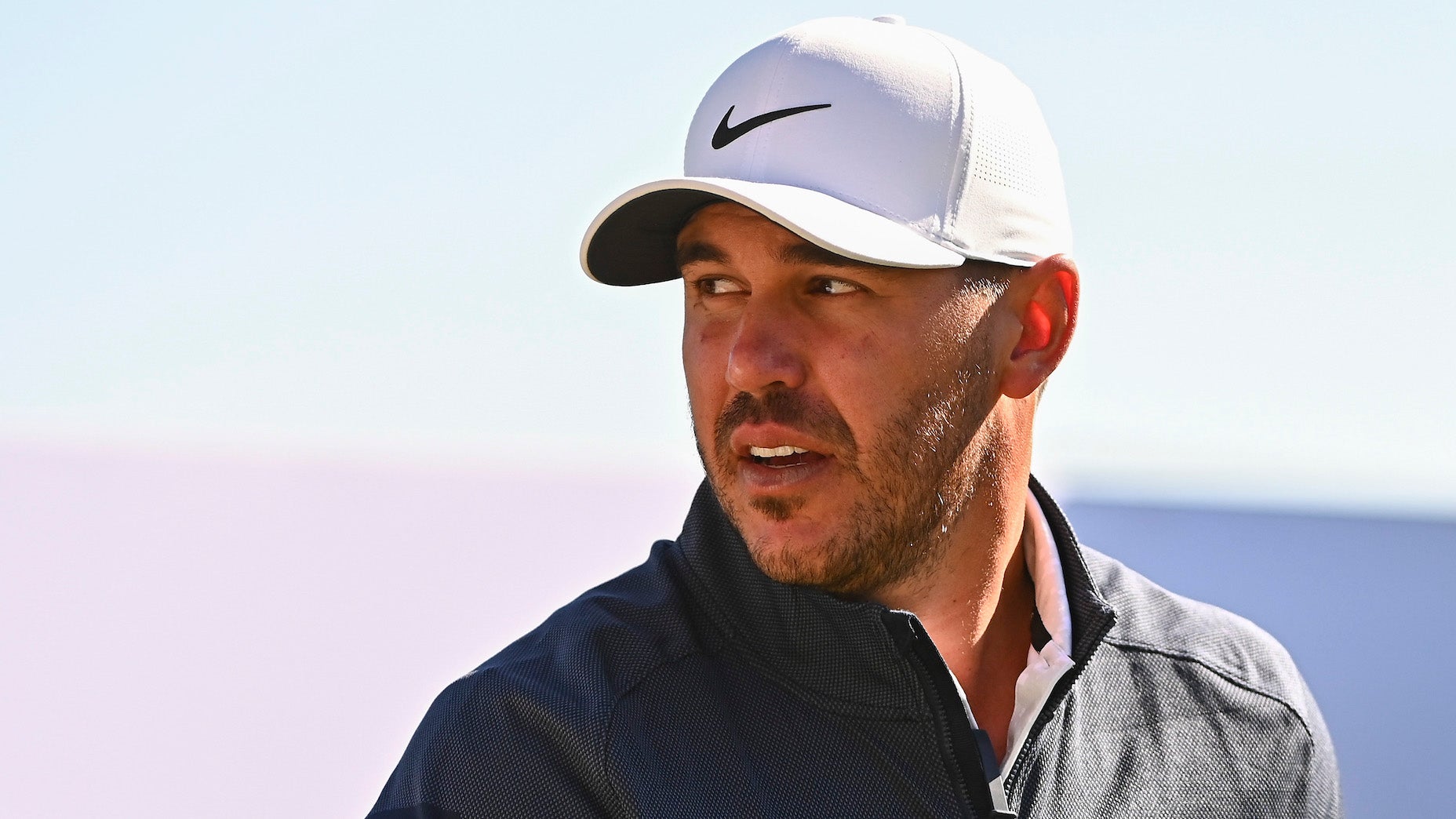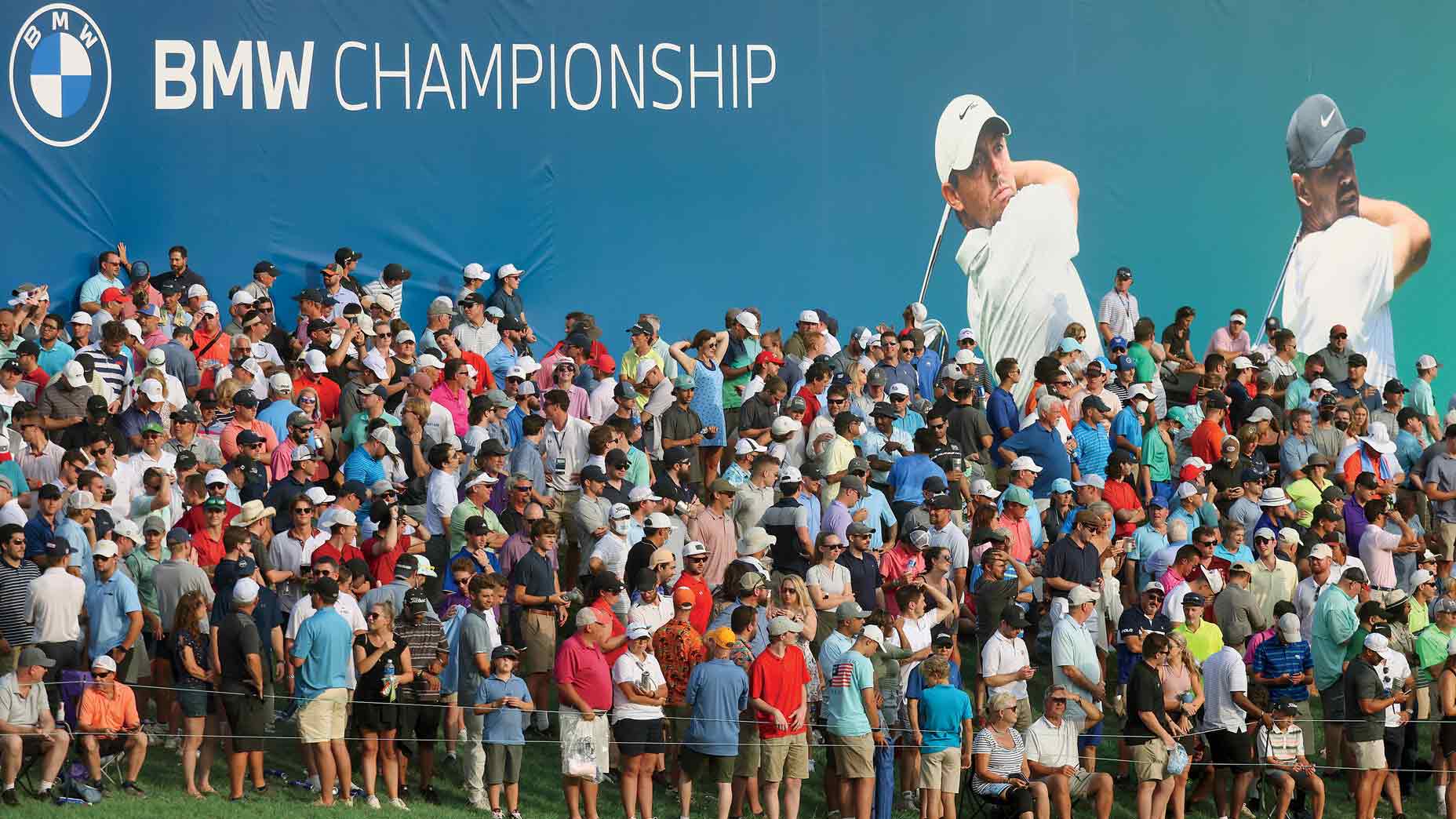These days, it’s a question every top professional golfer has to answer. Most will answer it privately, but on Wednesday at Mayakoba Patrick Reed faced the question publicly.
“How driven are you by money?”
This is a relevant question because of the PGA Tour’s current set of challengers. It’s a question because of breakaway leagues and appearance fees and the deep pockets of Saudi leadership. It’s a question because the top players on the PGA Tour make a lot of money but they could also probably make quite a bit more.
Reed gave the answer that someone in his position — someone who has made a lot of money — has the freedom to give.
“I’m driven by trophies,” he said.
Is money a factor? He shrugged off the idea.
“I’m driven by trophies. If you go out and play well, and you consistently do what you’re supposed to do on the golf course and have a chance to win every week and you go out and you win golf tournaments and win trophies, the money will take care of itself.”
Brooks Koepka admits he DOES practice — but differently than other prosBy: Dylan Dethier
How Patrick Reed used to decide between PB&Js and steak
Reed added that he wouldn’t see a guaranteed salary — the kind they have most sports leagues, like the MLB and NBA and reportedly in various PGA Tour alternatives, too — as something that would radically affect his motivations.
“It’s hard to say,” he said, considering the idea. “No. I can’t really speak for a lot of the other players, but me, I’ve always been so driven by winning golf tournaments and having a chance on Sunday and getting that adrenaline that you get that money can’t buy. You get that adrenaline going and those juices flowing when you’re coming down the last seven or eight holes with the chance to win a golf tournament, that’s what I live for, having those kinds of moments.”
Of course, that wasn’t always the case. The competitive spirit may have been the same, but the money wasn’t. But just last week in Bermuda Reed crossed the $36 million mark in career PGA Tour earnings. That’s enough to change your perspective.
Patrick Reed doesn’t often look backwards, at least not in front of a microphone. Why? Hard to say for sure. He’s a private person in the public sphere, and life is complex, and what are undoubtedly some of his most complex personal moments have played out in the media. But on Wednesday as he thought about money we got a glimpse of wistful Reed, a side of the Masters champ that we rarely witness.
Money was an issue, he said, in the days where he was chasing spots in Monday qualifiers, the days before he had any real PGA Tour status. He acknowledged it can be easier to keep your eyes on the first-place prize when you’re not thinking about putting food on the table. But in the end playing well takes care of everything. At least, that’s the mindset he settled on.
Here’s how much money a golf course stands to make — or lose — by hosting a high-profile eventBy: Paul Sullivan
“You’re always excited you’re always excited whenever you get a big paycheck. I mean, of course,” he said, finally acknowledging the obvious.
“My biggest thing, so for the Mondays, Justine and I, when she was on the bag it was, okay, if we made the cut, we would go out and have a nice steak dinner on Friday night. If we didn’t make the cut, it’s PB&Js and let’s get ready for the following week.
“Obviously money’s going to play a factor because if you’re missing every cut, you’re not going to go out and have these nice dinners and everything. For us, it was more about playing well, and if you played well, reward yourself by, you know, whether it’s a dinner, whether it’s able to play the following week and kind of go and attack.”
His eyes lit up as he described the steak dinners. There was something special about this time in his life. Team Reed against the world, playing in relative anonymity, chasing a paycheck and a good meal.
These days, it’s far more complex being Patrick Reed. Existing in the public discourse means navigating family drama in public, navigating rules drama in public, dealing with a complex reputation in public. On Wednesday I asked Reed whether he consumes golf coverage; he said he doesn’t “watch or read or do anything that’s golf-related” because it would take his mind him from the task at hand. The closest he’ll come is checking ShotLink for strategy clues. But he says he doesn’t tend to social media. No Golf Channel. No articles. No distractions.
There was something else interesting in his pre-tournament remarks, too: Reed mentioned golf’s accessibility problem, and how because it’s so expensive, there are kids everywhere who face massive hurdles to getting involved.
“Golf’s a very expensive game, it’s a very secluded game, so it’s hard for children or people who can’t quite afford it to go out and practice and play and improve on it,” he said. It was telling that when Reed was asked about money, he talked about golf — but when he was asked about golf, he talked about money. The two subjects are hard to fully separate.
“Golf takes a lot of time, but at the same time you don’t need to go out and play 18 holes to kind of get hooked,” he said, talking again about accessibility. “You just need that one solid golf shot and then you’re hooked and you want to do it again. It just seems to keep on sticking with you.”
There’s your daily dose of serenity, courtesy Patrick Reed. He’s the $36 million man. But before that, he was chasing steak dinners. And before that, he was chasing one solid golf shot.
“Really, I’ve never been, and my team, we’ve never been money driven. We’ve been more about going out and performing and playing some good golf.”
If everything were so simple.



